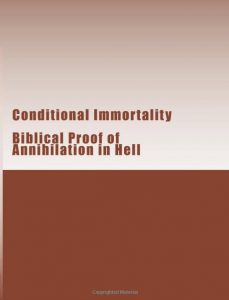Traditional theology is Biblically wrong about the first century phrase “gnashing of teeth”
A simple review of a few of the texts about “gnashing of teeth” will clearly show that the Traditional way of thinking of it as a statement of pain and suffering will be unwarranted. Our language and idioms simply are not the same as the biblical ones. Case in point:
- Job 16:9-He teareth me in his wrath, who hateth me: he gnasheth upon me with his teeth; mine enemy sharpeneth his eyes upon me.
The one doing the “gnashing of teeth” has great anger towards the other.
- Psalm 37:12-The wicked plotteth against the just, and gnasheth upon him with his teeth.
The wicked are angry with the just and are “gnashing” their teeth at them.
- Lament 2:16-All thine enemies have opened their mouth against thee: they hiss and gnash the teeth: they say, We have swallowed her up.
Israel’s enemies are angry and have attacked Israel. They are “gnashing” their teeth at Israel.
- Acts 7:54-When they heard these things, they were cut to the heart, and they gnashed on him with their teeth.
Stephen’s accusers were angry with Stephen and have attacked him. They are “gnashing” their teeth at him in anger.
 So from the hermeneutical principle that “scripture interprets scripture,” we can see very clearly that when Jesus (Yeshua) says:
So from the hermeneutical principle that “scripture interprets scripture,” we can see very clearly that when Jesus (Yeshua) says:
“There shall be weeping and gnashing of teeth, when ye shall see Abraham, and Isaac, and Jacob, and all the prophets, in the kingdom of God, and you yourselves thrust out.” Luke 13:28
He means on that day:
There will be many sad people “weeping” at the realization that they have just lost the chance for immortality and will soon be put to death forever.
There will be many very angry people gnashing their teeth at God. It is they who will probably be cursing at God (i.e. gnashing their teeth) all the way to their last breath before being destroyed.
There is nothing more than “weeping and anger” that is being said in this ancient phrase has been misinterpreted by tradition. The Evangelical Conditionalist position is Biblically correct. Proper hermeneutics demands we compare scripture with scripture. This is a prime example of the help that comparison provides.
» Purchase “Conditional Immortality” Biblical Proof of Annihilation in Hell” on Amazon! Give a copy to your friends and family 😀

Emet Ahava
HOW do we really know if we’re “saved/being saved”??? How do we truly compare a 21st century condition with a 1st century message?? Churches have FAILED to make DISCIPLES so how can those of us truly find hope when there is so much confusion and little unity and truth???
Dirk Waren
Hi Emet.
Thanks for the input. I understand where you’re coming from, my friend.
As far as assurance of salvation goes, see this article and the relevant Scriptures thereof.
In regards to discipleship, all believers are called to be disciples till the day they pass from this Earth, which literally means to be a learner of the LORD on a daily basis. You can read details here.
To avoid confusion in your spiritual growth due to the lack of unity in the Church, I suggest drawing close to God in your personal walk and embracing the principle of sola Scriptura (Latin for “[by] Scripture alone”), as far as doctrine goes (which explains Paul’s ‘rule’ in his assemblies “Do not go beyond what is written“). Keep things simple by starting with the nine basics of Christianity and mastering each, which you can read about here.
God Bless You in Your Service,
Cindy
Thank you for this much needed article!
I have gone to mainstream protestant churches all my life and I am now in my 50’s. All of them without exception taught of hell being a place of eternal torment. It never made any sense to me, yet it wasn’t until the last two years and from the clear reading of scripture which says “the punishment for sin is death” that the opposite of eternal life is “perish” (John 3:16) and that Jesus said not to fear the person who could destroy the body, but rather fear the one that can “destroy both body and soul” in hell.” (Matthew 10:28) However, regardingthe the Luke 13 verse where the unbeliever is “thrust out”–at that very moment they both weep and gnash there teeth. But not in anger–it is with anguish (extreme emotional distress) and deep regret. We know this because it says when they “see Abraham, and Isaac, and Jacob, and all the prophets, in the kingdom of God” but they themselves are cast out, it is at that very instance they “weep and gnash their teeth (weeping and gnashing teeth is not mere crying and sadness). The definition is clear by the context. They now fully comprehend what they have lost–the gift of eternal life.